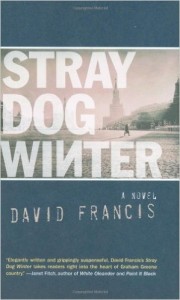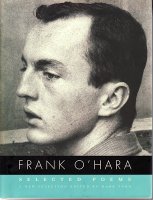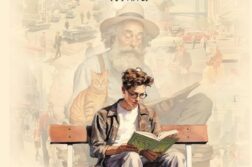 Stray Dog Winter
Stray Dog Winter
by David Francis
MacAdam/Cage. 300 pages, $24.
David Francis’ Stray Dog Winter exemplifies a talented writer trapped by the modern publishing industry. Its early chapters capture the life-changing experience of an Australian child lured into a homosexual encounter with an itinerant Mormon missionary. These pages are convincingly written; but then the book takes a decidedly wrong turn. This happens at about the time that our hero arrives in Russia at the invitation of his half sister. We never find out why his sister has summoned him because she refuses to explain and he doesn’t demand an explanation. Although totally gay, he tries to have sex with his sister. In turn, he’s seduced by an operative under the control of the KGB with whom he falls in love, despite the fact that he knows he’s being lured into a murky conspiracy. He asks some questions, but the maddening thing is that he doesn’t require answers. It turns out his half-sister is working for a terrorist whom she fell for years ago in Australia, that his seducer is the son of a sadistic army general, and that, at his sister’s direction, he has smuggled in documents that would be embarrassing to the Soviet government. This results in scenes where he tries to go undercover, is betrayed by his Soviet lover, put in great peril, etc., etc. If anyone ever acted like David Francis’ hero, there’s no reason to be interested in him. But I suspect Francis was himself seduced by the success of books like The Da Vinci Code and felt that to sell his book he had to create a wildly conspiratorial plot. This is Dan Brown on barbiturates. Francis writes well when he’s drawing on what presumably is personal experience. I think he has a better book in him than this. But then, a better book might not have gotten published in today’s environment.
Michael Hattersley
 Blue: The Derek Jarman Poems
Blue: The Derek Jarman Poems
by Keith Garebian; edited by John Barton
Signature Editions. 96 pages, $12.95 (paper)
Graced by degrees of subtle citation, Canadian poet Keith Garebian’s recent collection of poems inspired by British film director Derek Jarman (Blue, 1993; Edward II, 1991; Caravaggio, 1986; Sebastiane, 1976) is at times reminiscent of Allen Ginsberg’s call to America at the start of an intense political moment. Ginsberg’s first person plea from Howl resonates in Garebian’s opening pages as he draws directly from the iconic phrasing of the beat poet’s masterpiece. From Howl’s famous opening line, “I saw the best minds of my generation destroyed by/ madness, starving hysterical naked,” to the following line in Blue: “You saw the best bodies of your generation/ destroyed at bathhouses and tea rooms.” The cycle of poems in Blue chronicles the life of the gay filmmaker. The prologue adopts an unsettling, pathologizing tone, quickly becoming a beautiful and evocative tribute to the artist. Alliterative word play coupled with gay male sexual encounters and passages devoted to Jarman’s films takes this collection beyond beautiful gestures and into a powerful and highly original consideration of Canadian gay male poetry: “dry-fucking the boy next/ to you caused pain to pearl/ the back of ferns, peers/ to savage the two/ of you like rabid dogs,/ and the sky to fall.” Blue follows Garebian’s 2004 work on Frida Kahlo in Frida: Paint me as a Volcano, adding a sexualized dimension to the earlier work. This pair of poetic biographies illuminates the lives of two decidedly queer artists from very different æsthetic and political backgrounds.
David Bateman
 Selected Poems
Selected Poems
by Frank O’Hara; edited by Mark Ford
Knopf. 288 pages, $30.
If Frank O’Hara were still among the quick, he would be 82 years old—four years younger than Nanci RayGun. Alas, Frank left his mortal coil in 1966, after a completely freakish late-night automotive accident on Fire Island—struck by a teenaged dune-buggy driver on the beach. O’Hara was hospitalized in the city but died shortly after the incident. Stuart Byron, a writer for the Village Voice, once noted that after O’Hara’s death “Manhattan was full of widows.” This new selection of O’Hara’s poetry ranges over his entire career and includes his dramatic works. It’s always a joy when O’Hara is published. Gore Vidal once said that it’s easy to get famous in America—this may not be as true today as it was when Gore made the comment, and certainly not for the poets—but Gore also noted that it’s even harder to stay famous in America. Frank O’Hara’s reputation has proved to be enduring. His work is now anchored in the American pantheon. His voice is always fresh and original—a strong postwar presence in a tradition inspired by French surrealism, American vernacular, pop culture and gay male camp. Others worked at it too, but O’Hara gets the brass ring.
John Mitzel






